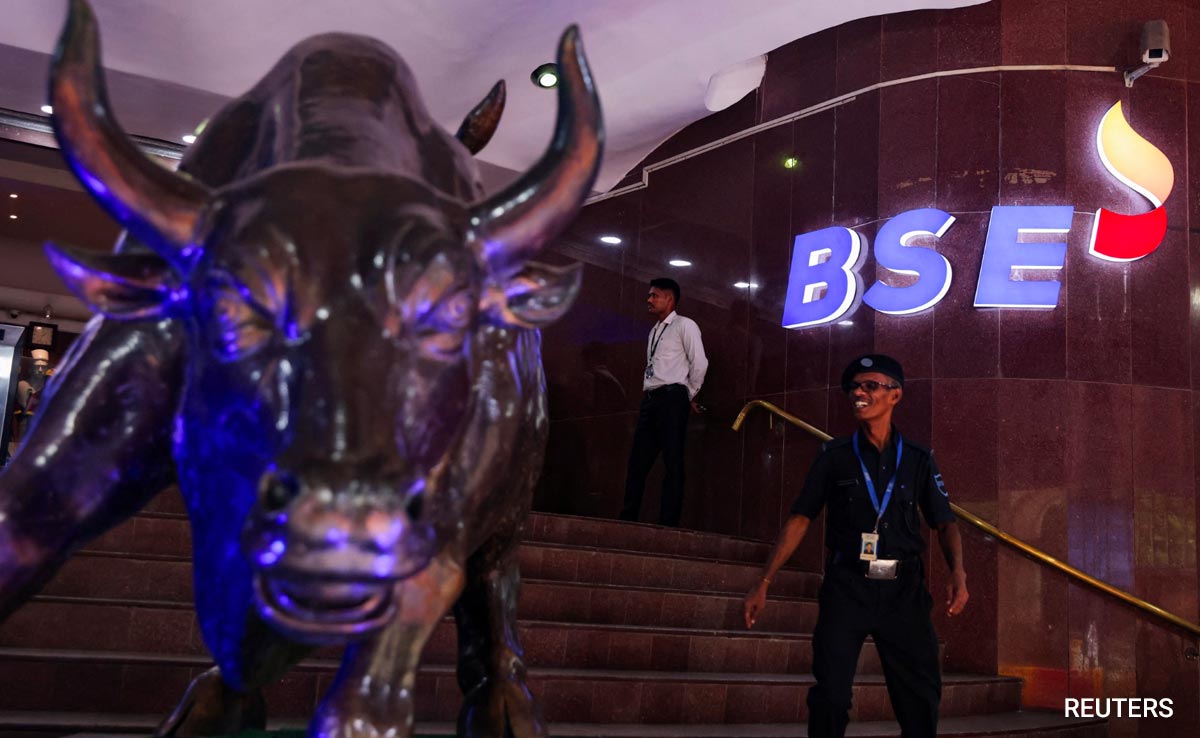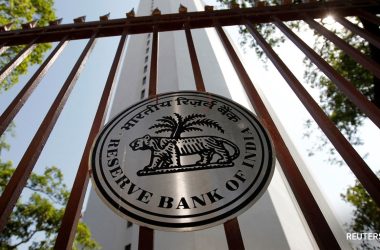Falling for fifth day running, BSE Sensex tanked 522.82 points, or 0.81 per cent, to settle at 64,049.06
New Delhi:
Over ₹2 lakh crore of investors’ wealth has been wiped out on a single day of trading today. They also became poorer by over ₹14 lakh crore in just five days as markets fell amid global tensions sparked by the Israel-Gaza war and its effects in the Middle East.
Falling for the fifth day running, the 30-share BSE Sensex tanked 522.82 points, or 0.81 per cent, to settle at 64,049.06.
The Nifty fell 159.60 points or 0.83 per cent to 19,122.15.
Overseas investors turned net sellers of Indian equities today as they sold ₹4,236.60 crore, and domestic investors bought ₹3,569.36 crore.
Foreign institutions have been net buyers of ₹1,10,584 crore worth of Indian equities so far in 2023, according to data from the National Securities Depository Ltd, updated till the previous trading day.
Among the Sensex firms, Infosys, Bharti Airtel, NTPC, IndusInd Bank, ICICI Bank, Tata Motors, Larsen & Toubro, Bajaj Finance, Tech Mahindra, Titan, and Axis Bank were among those whose shares fell.
Tata Steel, State Bank of India, Maruti, Mahindra & Mahindra, Nestle, and JSW Steel gained.
“Investor sentiment is on the edge as tensions in West Asia continue to drag the market. Despite a drop in oil prices and an optimistic view of the progressing Q2 results season, investors took a cautious approach due to the expectation that a higher interest rate scenario would continue slowing future growth,” Vinod Nair, Head of Research at Geojit Financial Services, told news agency PTI.
Global oil benchmark Brent crude climbed 0.30 per cent to $88.32 per barrel.
In Asian markets, Tokyo, Shanghai, and Hong Kong settled in green, while Seoul ended lower. European markets were trading in the negative territory. The US markets ended in the green on Tuesday.
There was no equity trading yesterday due to Dussehra.
The S&P BSE Sensex closed down 523 points, or 0.81 per cent, at 64,049.06, while the NSE Nifty 50 was 160 points or 0.83 per cent lower at 19,122.15.
With inputs from PTI
Waiting for response to load…








